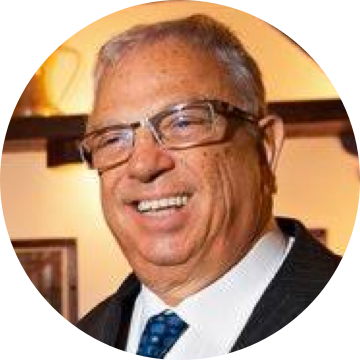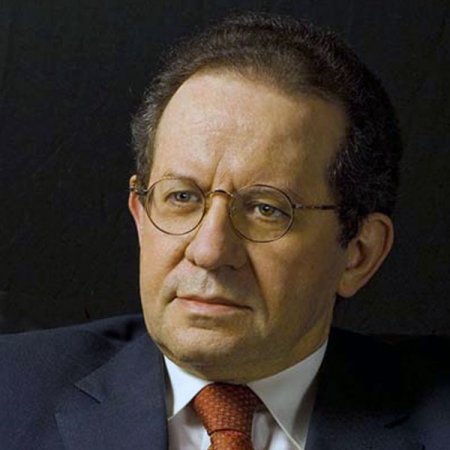How it started
Originally developed by a group of management researchers from the University of Strathclyde, in Scotland, the Global Management Challenge is currently the most popular management simulator in the whole world.
Many countries organize the competition locally, and the International Final brings together competitors from such diverse origins such as Brazil, Poland, Spain and China.
In the early Seventies, the simulator had scarcely left the classroom. Designed to enliven the tedium of study in university departments of economics and management, and importantly, to demonstrate clearly the consequences of student decisions on the success of an imaginary company, the simulator soon demonstrated unforeseen advantages.
It could be used as a behavioural tool to improve teamwork, or to analyse the behaviour of candidates under conditions of stress. Noting how the simulator had been developed as a public competitive event by its authors in Scotland, a young university assistant of the Superior Institute of Economy and Management who had been a participant in an international colloquium on management, realised the potential of the simulator, and decided to negotiate its use in Portugal.
Before entering the European Economic Community (the EEC), he saw that the country needed to find educational tools that would allow it to come closer to European standards, in terms of quality management and productivity.

Luis Alves Costa
President of SDG & Global Management Challenge Founder
At this time the young Luis Alves Costa looked for a partnership with the most prestigious Portuguese periodical newspaper. The EXPRESSO had given evidence of courage and of independence in the years that had followed the Portuguese revolution (1974), being the prime journal of reference for educated Portuguese.
On the 18th of August of 1979, the newspaper announced the birth of the Grande Jogo das Empresas (Great Game of the Companies), also known as ‘Management 80′, presenting it as a “competition between teams of six people, usually from the same company, who will be presented with dynamic management problems that they will have to tackle with the aid of a computer”.
This announcement contained a minor error that would be rectified the following week – in truth, the computer use was not indispensable, and many of the competing teams made use of the most skilful calculators existing at the time, something that today might have disastrous results.
The competition lasted for four months, from January to May, and the first winners were a group of professors and pupils from the Portuguese Catholic University.
The victory of this prestigious private school, that would repeat itself the following year, would significantly affect the future direction of the project. Since those first editions, the interest of university students in the Global Management Challenge has grown continuously, to the point that today most of the competitors are young students of economics, management and engineering. In 2004, there are 2000 competitors participating, representing 512 teams. In the first year, about seven hundred competitors, representing 124 teams took part in the competition.
The competition developed into an established feature of the Portuguese business calendar by the peripheral involvement of prestigious figures and institutions from Portuguese life. Throughout the last twenty-five years, members of the jury have included heads of government, ministers, members of the board of the most prestigious companies and university professors (currently, the president of the jury is the Vice-President of the European Central Bank, Vítor Constâncio).
Companies representing the banking, insurance, consulting, technology, computer sciences and manufacturing sectors have contributed to part of the costs of this project, allowing it to develop and the participation of hundreds of teams.
 Dr. Vítor ConstâncioVice-President of the European Central Bank
Dr. Vítor ConstâncioVice-President of the European Central Bank
The internationalisation of the competition was the following step. In 1984 took place the first International Final, with the presence of three countries: Portugal, Brazil and United Kingdom in Lisbon. The Portuguese were the winners of this first meeting, and would continue to dominate for several years. In the 1980s Luis Alves Costa’s enthusiastic team was able to implement the competition in countries such as Italy, Spain or Australia, for example. Thus, it became regular to have the presence of an always increasing number of countries in the international finals of the competition.
As the Global Management Challenge grew in size, it also adapted itself to the world that encircled it. Edit 515 Ltd., the company formed by the original creators of the simulator, frequently introduced new factors that brought new attractions and new difficulties for the competitors. In this way it was able to introduce the Euro currency before it existed in real life, and to quickly simulate new markets when Internet technology first appeared.
With the arrival of China into the family of the competition in 1995, it became evident that a group of new countries had found in this initiative a way to understand how a market economy worked. It happened with the Asian giant and later, with the Czechs, the Poles and the Slovakians.
For many Chinese competitors, victory in the competition means a place in a multinational, because it proves that they have succeeded in a difficult test before the strongest opponents. This justifies the determination that Chinese teams demonstrate in the national competition and in the international final, and their victories in the last editions.
The Global Management Challenge, was also known in some countries, by different names; Gestion, Euromanager, Global or World-wide Management. But it always keeps the same essential characteristics: the competitors are asked to take decisions in the areas of the marketing, sales, production or research and development, knowing that the other teams are competing in the same market and selling the same products. The decisions of each team influence in the behaviour of the total market; as it happens in real life: but at the same time the teams’ decisions are able to influence the real life future of each person taking part.

